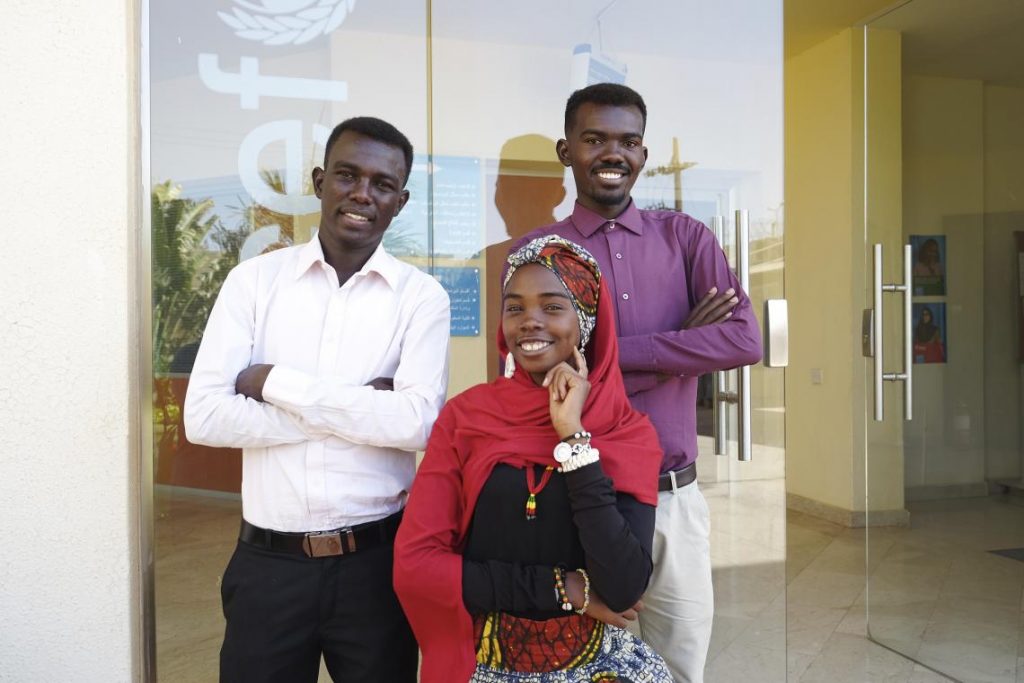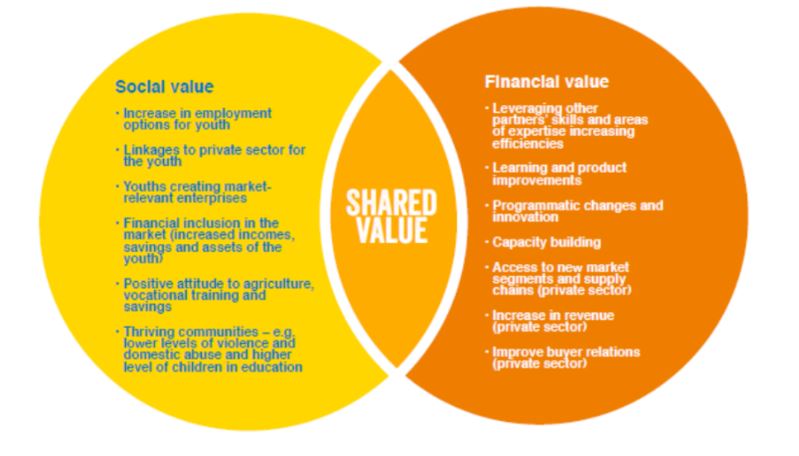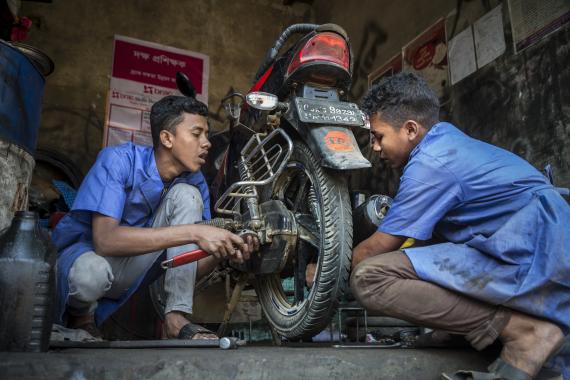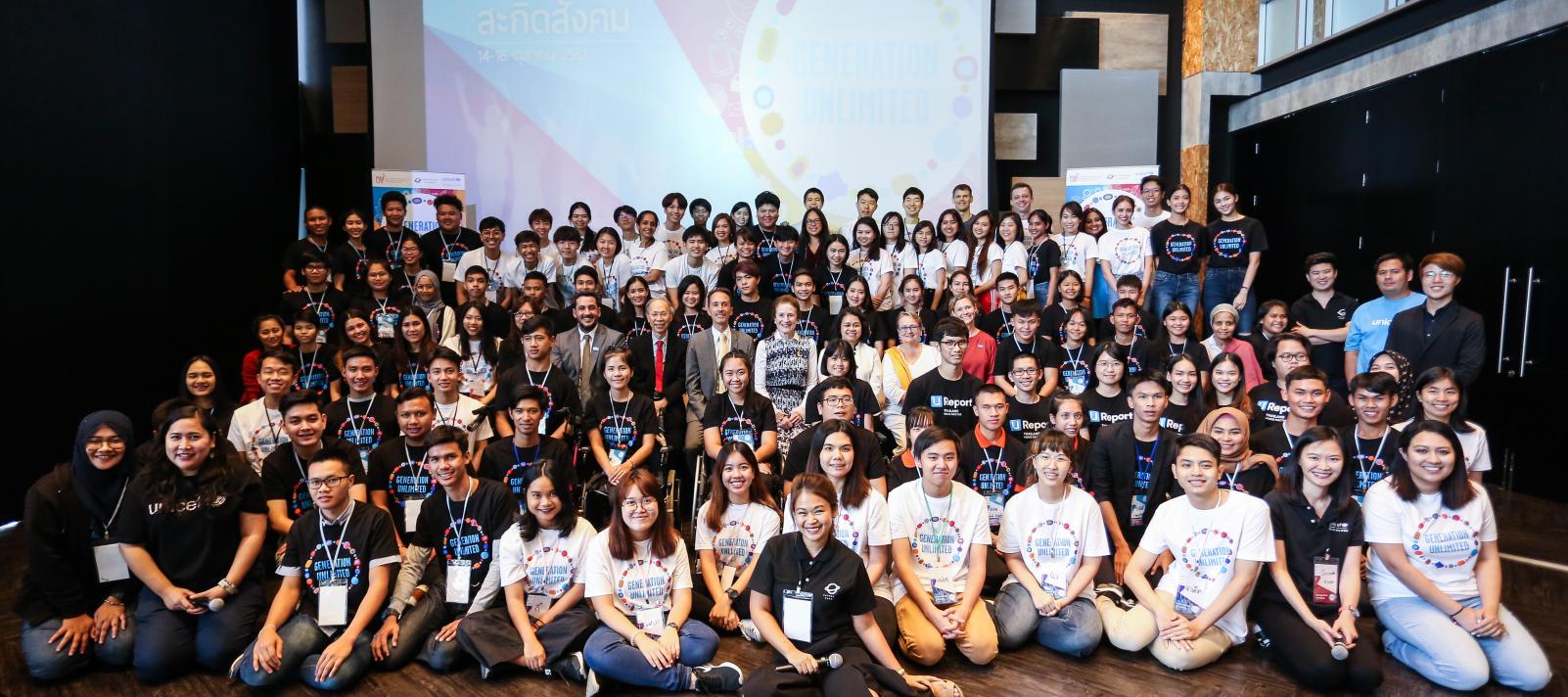The Demographic Dividend
The new decade ushered renewed commitment towards the achievement of the global Sustainable Development Goals (SDGs). As the world races towards the evaluation of its commitment to development, proponents have expanded the girth of participation. Global leaders and policy advocates have championed youth participation as a crucial element in catalyzing the achievement of the development goals. Currently, youth account for 1.8 billion of the global population aged between 10-24 years. Least developed countries are expected to experience a 62% increase in their youth populations in the next three decades. Sub-Saharan Africa is expected to grow exponentially with statistics projecting an 89% increase in the youth population. To harness the collective potential of this demographic dividend, it is important to create inclusive societies and adopt evidence-based policies, instrumental in accelerating youth oriented objectives which lend themselves to advancing sustainable development.
The Forgotten Billion
Although they make up a majority of the population, many youth around the world have been disenfranchised. An estimated 142 million youth have not received basic education. This has largely contributed to the growing levels of illiteracy that has limited the capacity of young people to contribute towards economic development. An estimated 71 million youth are unemployed, with millions more struggling to eke out a living in the informal sector. The International Labour Organization estimates that youth in low and middle income economies make up 156 million of the working poor. Similarly, the geography of poverty is skewed against young, uneducated and unskilled populations in least developed economies. Moreover, the lack of decent employment and the desire to exist in socially inclusive environments has contributed greatly to youth immigration. The stark realities in which we live warrant the deployment of affirmative action centered on youth empowerment. To effectively tackle these challenges, there is need to re-frame the role of the youth and their contribution to sustainable development.

Youth play a pivotal role in securing economic progress. To achieve youth driven development, youth need to be positioned and engaged as policy architects of sustainable development. The adoption of youth centered policies ensure that the youth are empowered to contribute towards economic progress. Youth driven interventions aimed at resolving societal challenges redefine the development equation, changing the role of the youth from passive recipients to solution providers.
A New Approach to Achieving Sustainable Development
Is it possible to harness the human potential of the global majority? The answer lies in collaboration.
Strategic alliances and partnerships will play a major role in managing the scope of social and economic transformation. Building partnership models that are long lasting, scalable and transformative, and which create shared value is key. Multi-sectoral approaches will be instrumental in marshaling resources needed to fuel development. In addition, collaborations with the civil society will be beneficial in infusing accountability for actions.

Generation Unlimited: Leaving No One Behind
The wide scope of development demands the adoption of participatory models that make key populations important players in the process. The youth, as the demographic majority, have a greater role to play in the adoption and implementation of development priorities. To do this, there needs to be acceptance and ownership of policies that will benefit generations in the future.
“The hopes of the world rest on young people. Peace, economic dynamism, social justice, tolerance — all this and more, today and tomorrow, depends on tapping into the power of youth.”
Antonio Guterres, United Nations Secretary General
Generation Unlimited (GenU), a youth initiative driven by UNICEF, has played a locomotive role in converging global leaders, industry experts, policy makers and think tanks in spearheading youth driven development globally. Founded on the need to have inclusive development, the movement places the youth at the center of development initiatives. As equal stakeholders, youth are encouraged to create sustainable solutions to the challenges faced by single communities and whole societies. This model invites the youth to proactively drive development within their spheres of influence. Youth inclusion in national processes has created a platform for the articulation of solutions to the challenges that face them. Moreover, the retooling and up skilling of youth has increased their capacity to lend their expertise towards contextualized development programmes.

The Future of Work
Youth have the capacity to make substantial contributions to economic development through decent work. However, the continued decline of youth involvement in the labour market reflects a worrying trend. Globally, a fifth of the youth population currently have the NEET status. This means that they are not employed, not actively pursuing any education and not earning any experience. Further still, young people are more likely to be unemployed due to limited work experience. The emergence of the Fourth Industrial Revolution (4IR) has re-shaped work requirements, disproportionately affecting a large number of youth. To address these challenges, GenU has put in place robust response mechanisms to match skills acquired against marketplace needs. In an ambitious plan to address the skill disparities, the movement has mounted initiatives to plug the gaps.
Education and training have been the bulwarks from retrogressive cultural practices and systemic oppression of youth from disadvantaged backgrounds. GenU has been instrumental in placing youth in corporate institutions and training facilities. The synergistic approach to youth empowerment connects youth to the job market and ensures that they build experiences that will be useful in securing formal employment. Further still, job shadowing and internships enrich the learning process by exposing youth to the realities within their industries. This increases the number of skilled youth significantly and translates to economic growth through youth owned social enterprise. GenU has capitalized on the ability of youth to create employment by contributing seed funding and technical support to scale up the most innovative ideas. Additionally, the movement has played a major role in cultivating an entrepreneurial mindset, enabling young people to co-create and co-design solutions to the problems they face.
“We are going to co-design and co-create with young people. So with Generation Unlimited, they are going to be in the driver’s seat, steering us all along the way. The time is now. The need is urgent. And 1.8 billion young people are waiting.”
Henrietta H. Fore, UNICEF Executive Director
Embedded in the success of Generation Unlimited initiatives is equity. While the magnitude of the task is immense, the use of technology has increased momentum on youth empowerment. Technology has enabled the deployment of a multiplicity of interventions aimed at increasing the spectrum of impact. Alongside education, technology has proven to be the great equalizer, bridging illiteracy gaps to create more knowledgeable societies. A lot more needs to be done to accelerate progress. GenU has firmly trained its focus on digital innovations in the areas of digital connectivity and portable certification to increase the digital footprint. Additionally, broad-based entrepreneurship programmes; job matching platforms and job opportunities in the green economy will spur innovation and employment in emerging industries. Education technologies are expected to yield opportunities for work and remote learning while simultaneously expanding the scope of remedial learning. Digitally mediated mental health interventions are set to reduce school drop out rates by providing the youth with the professional help that they need.

Generation Unlimited has played a pivotal role in advocating for the inclusion of youth with disabilities. The movement ensures that disabled youth have an equal opportunity to lend their voice to the development discourse and actively participate in line with the Convention on the Rights of Persons with Disabilities. Further still, GenU has amplified the positive outcomes of youth leadership through the ‘Generation Unlimited Youth Challenge’. The competition, held annually, attracts more than 800 innovators from across the globe and gives them the opportunity to design innovative solutions to challenges. The best ideas receive mentorship and funding to enable them create greater impact in the community. Last year, GenU launched the Young People’s Action Team (YPAT), an initiative driven by young leaders with significant grass root experience in key priority areas. YPAT drives systematic and meaningful engagement of youth at the decision-making process of GenU at local, regional and global levels. Nominated by UNICEF, the 8 YPAT members will ensure that the voices of young people are heard and taken into consideration in planning and operationalization of sustainable development blueprints.

The Future of Sustainable Development
The path towards achievement of the sustainable development goals is interspersed with complexities. To harness the full potential of the vast youth bulge, there needs to be concerted affronts to the challenges that we face. GenU has adopted multi-sectoral approaches and partnerships which will be instrumental in breaking the barriers and overcoming bureaucracy that so often encumber development endeavours. With renewed commitment, GenU and its partners now focus on the youth and deploy new innovative strategies for action. The pursuit of youth participation must move beyond engagement to involvement. Youth are not passive recipients of development policies, but active contributors to the process. Youth participation precipitates pro-activity and responsibility that catalyzes effective delivery and enhances mutual ownership of outcomes for the posterity of future generations.
Header Image Credit: Generation Unlimited
IVolunteer International is a 501(c)3 tech-nonprofit registered in the United States with operations worldwide. Using a location-based mobile application, we mobilize volunteers to take action in their local communities. Our vision is creating 7-billion volunteers. We are an internationally recognized nonprofit organization and is also a Civil Society Associated with the United Nations Department of Global Communications. Visit our profiles on Guidestar, Greatnonprofits, and FastForward.


